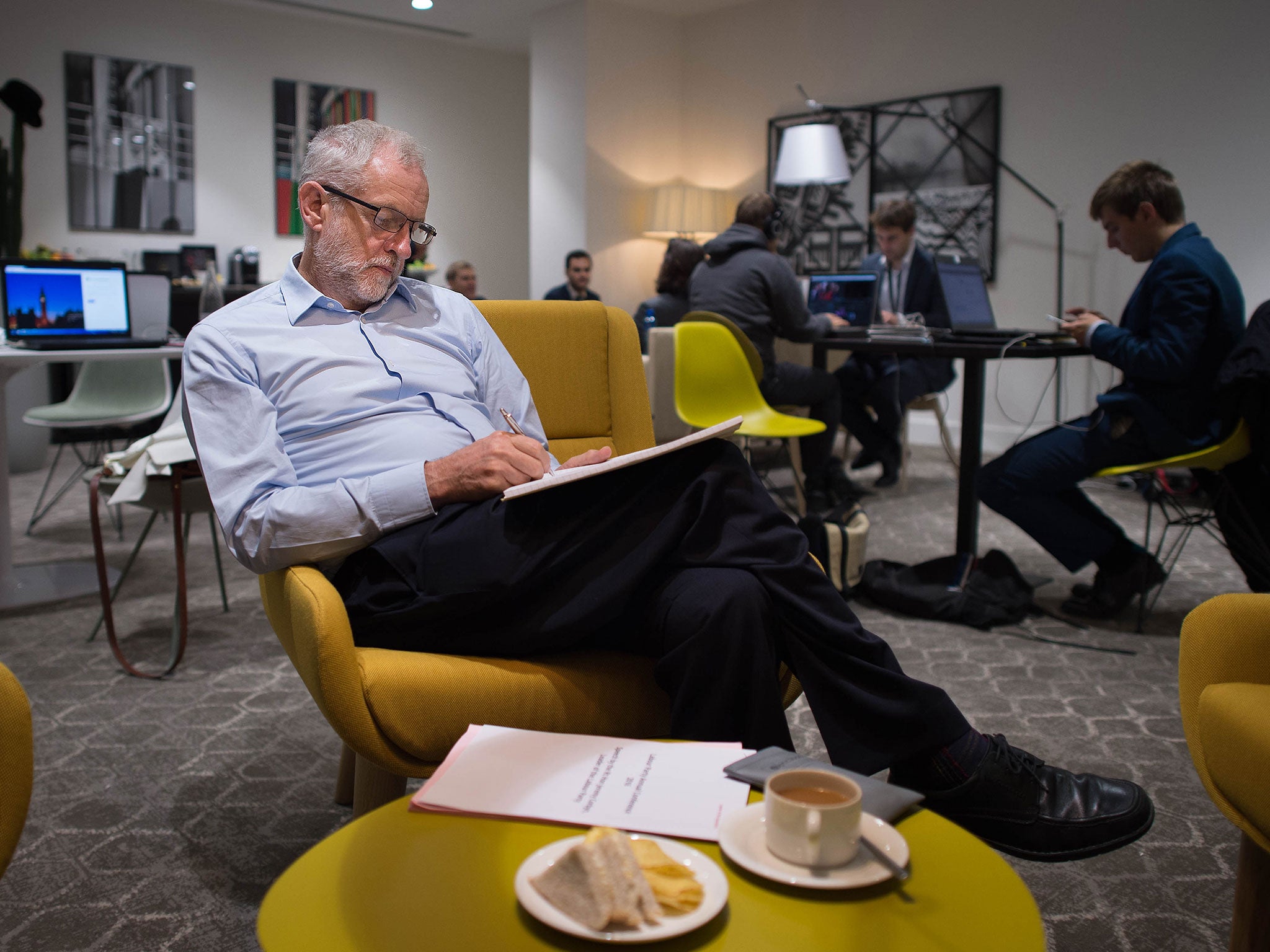Why the Labour Party won’t split – at least, not until 2019
If there is a split, it wouldn’t be until late in this parliament. The threat of divisive by-elections would deter any attempt at a mass purge of non-Corbyn MPs


Is Labour going to split? Not yet. Whether it ever does depends on the strength of the Corbyn movement. Yes, 313,000 is a lot of people. More people voted for Jeremy Corbyn this year than the 251,000 who voted for him a year ago, even if it’s nothing like the 508,000 who voted for Tony Blair in 1994.
But at some point, in the next year I would guess, the Corbyn tide will turn. The numbers of the disillusioned will start to outnumber the new recruits. The question is whether the tide will ebb fast enough to allow another leadership challenge, possibly by a better candidate than Owen Smith, to succeed. Probably not next year, but maybe in 2018 or 2019.
The significance of the war for control of the National Executive – one battle in that war was won by the non-Corbyn forces this week – is that Corbyn probably doesn’t have the votes to change the rules for leadership elections. Any change has to go through the National Executive and then be approved by the next annual conference.
So the earliest he could change the rules to make it harder to get rid of him, or easier for another Corbynite to stand, would be for the 2019 leadership election. (Although I suppose he could call a special conference before then – these are the mind-numbing procedural calculations that Labour’s civil war will descend to, if you thought this year’s court cases weren’t complicated enough.)
Anyway, this is why the Labour Party is not going to split yet, despite the friendly advice from Conservative columnists who used to be speechwriters to David Cameron. It is not just that memories of the SDP breakaway run too deep, but that Labour MPs think there is a chance that Corbyn might be gone before 2020.
They are not kneeling by Peter Mandelson’s side “praying” for an early election. Mandelson thinks defeat at the hands of the wider electorate is the only way the Corbynites will learn that Corbynism won’t work. Some MPs are more optimistic, thinking that politics has speeded up enough to mean that years of infighting and disastrous opinion polls will be enough to erode the Corbynite faith.
If it doesn’t, the split will start in 2019. It won’t be a new party like the SDP, but the result of deselections. If Corbyn supporters vote to replace non-Corbyn Labour MPs with candidates from their wing of the party, those MPs are likely to stand down and fight by-elections under a Real Labour or Democratic Labour label. If they have enough of a local following, they might win and a new party would be created as an act of self-defence.
This cannot start, however, until after September 2018, when the new constituency boundaries are planned to be finalised. Under the party’s rules, designed to make it quite hard to deselect MPs, the National Executive has to set a timetable for local parties to decide whether or not they want their MP to carry on. This time those decisions, called trigger ballots, will be complicated by new boundaries, but the important thing is that the National Executive won’t start the timetable until after the new boundaries come into effect.
Corbyn supporters are already brushing up on the rules for trigger ballots, which give local trade unions a big say (see How to Select or Reselect Your MP: 2016 Remix, by David Osland).
If there is a split, then, it would be a small one, and wouldn’t start happening until quite late in this parliament. The threat of divisive by-elections would deter any attempt at a mass purge of non-Corbyn MPs.
That is why, in the end, Corbyn’s leadership is unworkable. He cannot lead a credible alternative government if he doesn’t have the support of most Labour MPs. Whatever phoney peace breaks out over the next few months, that situation isn’t going to change. The painful and only question for the Labour Party is whether Corbyn goes before the next general election or afterwards.
Join our commenting forum
Join thought-provoking conversations, follow other Independent readers and see their replies
0Comments